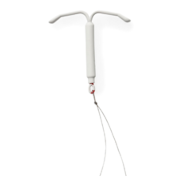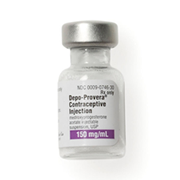I have epilepsy. Am I loveable? Can I have sex? Be a good parent?
Having epilepsy won’t keep you from finding fulfillment in love, sex, and family. But I get why you ask.

I started asking myself a lot of questions when I was first diagnosed with epilepsy. How am I supposed to get over the embarrassment of having seizures in class, in the lunch line, at the bus stop, at work, at friend’s houses…etc? How do I tell people I have epilepsy? What birth control can I use? Can I have kids? And on and on.
I had so many questions that I decided to start Girls_with_Nerve, a website focused on sexual and reproductive health for girls with epilepsy.
I didn’t know anyone else with epilepsy, and I wanted answers. I spent time doing research, interviewing different health care providers, and talking with other people who had epilepsy. Here’s the short version of what I learned.
You are not alone
About 65 million people worldwide have epilepsy. That’s so many people! And, there are tons of supportive communities of people with epilepsy, both online and in-person. I have been surprised how helpful I’ve found it to be part of those communities and have the opportunity to talk openly about my experiences with epilepsy. Because epilepsy is so varied, everyone’s experiences with it are quite different. But, there is almost always a common thread and a shared understanding.
You are super date-able
Lots of people with epilepsy fall in love, have long-term relationships, and get married. You might not be sure at first how to tell people you are dating about your epilepsy. Lauren, a blogger for Girls_with_Nerve, asked a bunch of people for advice on this one. She concluded that honesty is the best policy, and that doing the best you can to answer a new partner’s questions up front can be challenging but worth it in the long run.
It’s super unlikely you’ll have a seizure during sex
People have studied this. It’s very, very, very rare. I’d stop worrying about this one if I were you.
You have lots of options for birth control
Before talking birth control, it’s important to acknowledge that everyone’s experience with birth control is different. Plus, there is still a lot to learn about how epilepsy medications affect birth control and vice versa. That said, IUDs, the shot and the implant seem to work pretty well for people with epilepsy. Condoms are always a great option too and have the added benefit of protecting against sexually transmitted infections.
If you’d like to try something else, like the pill, the patch, or the ring, you have to pick smart. Research shows that the wrong combination of epilepsy medications and birth control is bad news. These types of birth control can make your epilepsy medication less effective, increasing your risk of seizures. On the other hand, some epilepsy medications can make some birth control methods less effective, increasing the chance of an accidental pregnancy. So definitely check in with a health care provider if you are interested in one of these birth control methods.
Speaking of talking with health care providers…
It took me a few tries to find the right one. I’ve heard that from other people with epilepsy too. They’ve shared that some providers know a lot about epilepsy but don’t feel comfortable talking about other issues—like sex, birth control, or pregnancy. It’s worth the effort to find a health care provider who can discuss your epilepsy and whatever else is going on in your life. Check out these tips for how to prepare for your visit and this list of questions you might want to ask once you get there.
You can get pregnant, and you can be a really great parent
It’s normal to have concerns about pregnancy and parenting. Here are some quick facts about pregnancy and parenting for people with epilepsy.
- Pregnancy can impact seizures, but it’s hard to predict how pregnancy will impact your seizures. Some people have fewer seizures, some people have more seizures, and some people’s seizures don’t change.
- Most people stay on some type of epilepsy medication during pregnancy.
- There is a slightly increased risk of birth defects when taking epilepsy medications during pregnancy. Still, over 94% of people with epilepsy have healthy babies without birth defects, compared to 97% of all women.
- For most people, breastfeeding while taking epilepsy medication is safe.
- It helps to make a plan about what to do if you have a seizure while taking care of the baby.
- There are supportive communities of other people with epilepsy who have had children.
You are enough
You are enough, just as you are. Believe in your power and find other people—partners, family, friends, and health care providers—who believe in you too.
— Amanda Dennis is the Director of Research and Evaluation at the Society of Family Planning. At the time she created Girls_with_Nerve, she was an Associate with Ibis Reproductive Health. When she’s not trying to make the world a better place through sexual and reproductive health research and dissemination, she’s in her garden or playing with pup, Maggie.
How do you feel about this article?

Heat up your weekends with our best sex tips and so much more.


